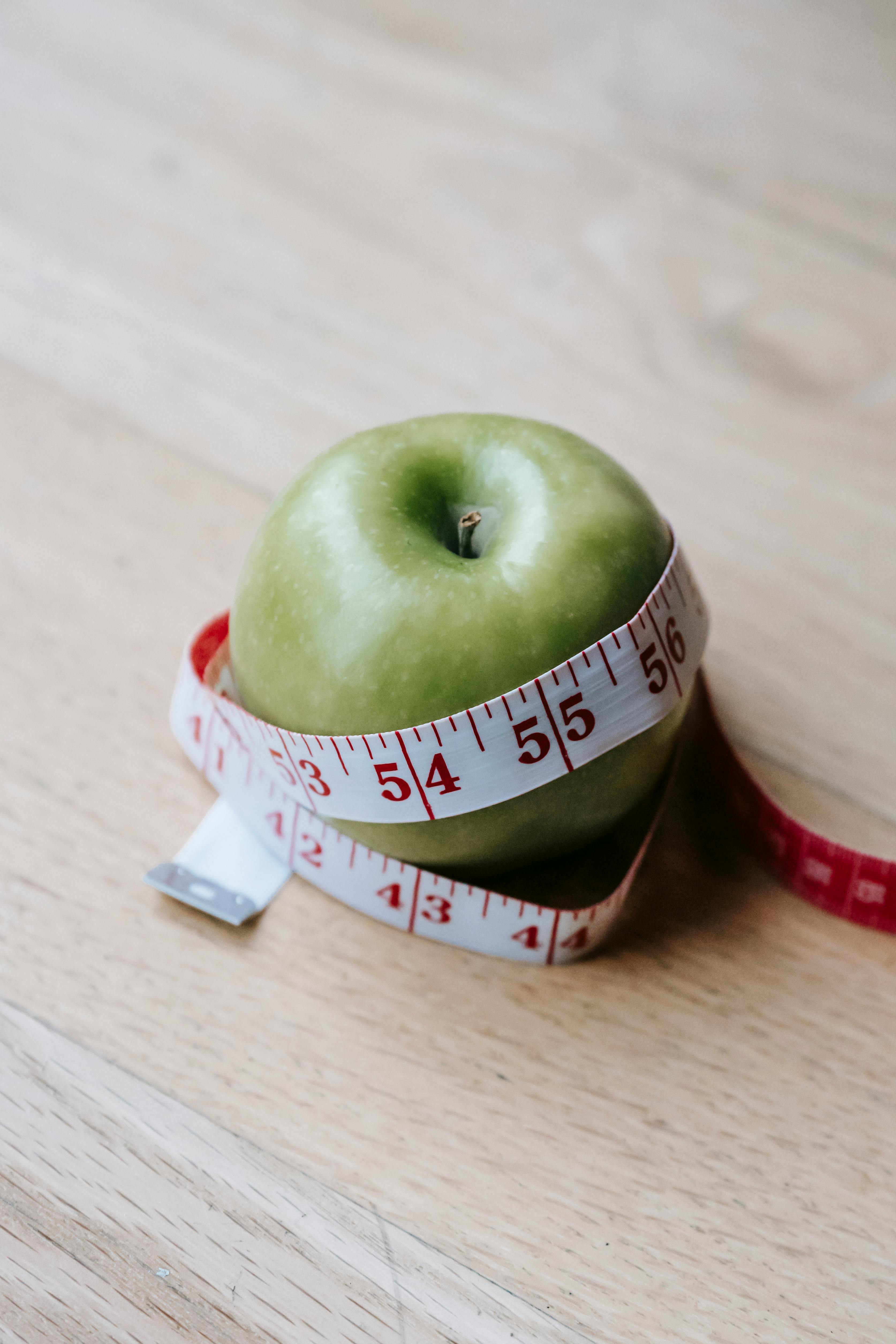Overcoming the Challenge: When You Hit a Plateau in Weight Loss
Struggling on your journey to a healthier body and hitting a weight loss plateau can be incredibly frustrating. “Overcoming the Challenge: When You Hit a Plateau in Weight Loss” presents the nitty-gritty of wrestling with the scales when they won’t budge a pound lighter – regardless of the sweat, time, and effort you invest. Through the lens of latest scientific insights, personal experiences, and expert recommendations, this article will equip you with the right know-how to conquer this roadblock and continue progressing towards your weight loss goals.

Understanding Weight Loss Plateaus
Definition of a weight loss plateau
A weight loss plateau is a common but frustrating part of any weight loss journey. You’ll know you’ve hit a plateau when your progress, which had been steadily decreasing, suddenly stops for a few weeks despite maintaining your diet and exercise regime.
Why plateaus happen in a weight loss journey
You may wonder why weight loss plateaus happen. Essentially, as you lose pounds, your metabolism slows down as well. When you weighed more, your body needed more energy and therefore burned more calories. But as you slim down, your body needs less energy for upkeep, causing weight loss to slow or even stall.
Identifying a weight loss plateau
Identifying a plateau isn’t always easy. Weight fluctuations are normal and can occur due to water retention or hormonal changes. However, if your weight hasn’t budged after several weeks, it’s likely you’ve hit a plateau, and it’s time to reassess your weight loss strategies.
Factors Leading to Weight Loss Plateaus
Decreased metabolic rate
One of the main reasons for hitting a weight loss plateau is a decreased metabolic rate. Initially, your body burns calories efficiently during dieting and exercise. But over time, it becomes more efficient, needs fewer calories, and weight loss slows down.
Changes in hormone levels
Hormonal changes can also contribute to a stalled weight loss. When you lose fat, the levels of some hormones that regulate fat storage, like insulin, change. Such shifts might encourage your body to store more fat, making weight loss more difficult.
Loss of muscle mass
In the initial phase of a weight loss process, dieters often lose not just fat but muscle too. Losing muscle decreases your resting metabolic rate, leading to fewer calories burned throughout the day. This, in turn, can slacken the pace of weight loss.
Body’s adaptation to exercise
Your body adapts quickly to any form of exercise. Initially, you might see impressive results. But over time, the same routine burns fewer calories because your body has adapted and become more efficient. This could result in a weight loss plateau.

Psychological Impacts of Weight Loss Plateaus
Decreased motivation
Hitting a plateaus can be tough on your motivation. When you first see promising results, you feel motivated and eager to continue your weight loss efforts. But when progress stalls, it’s common to feel frustrated, disheartened, and demotivated.
Negative impact on mood
Your mood can also be affected during a weight loss plateau. Seeing no progress despite your hard work can lead to feelings of sadness, frustration, or even anger. It’s essential to remember that plateaus are a normal part of the process and should not dictate your happiness or self-worth.
Lowered self-esteem
A weight loss plateau can negatively impact your self-esteem and self-confidence. You might start doubting your abilities and start blaming yourself for the lack of progress. But remember, weight loss plateaus are not failure – they’re a part of every weight loss journey.
Assessing Your Current Diet and Exercise Regime
Importance of caloric intake monitoring
Hitting a plateau might be a signal to reassess your diet. You might need to reduce further your caloric intake to adapt to your new metabolic rate. Tracking what you eat can ensure you apply necessary adjustments to overcome a weight loss plateau.
Quality of food intake
It’s not only about the quantity but also the quality of the food you’re eating. Consuming processed foods high in sugar and unhealthy fats can lead to weight gain, or stall weight loss. Choosing whole, unprocessed foods helps better control calorie intake and promotes weight loss.
Checking quantity and frequency of exercise
Adapting your exercise regime is equally important. It’s possible that you’re not burning as many calories as you think and therefore not creating the necessary deficit for weight loss. Increasing the frequency or intensity of your exercises might give your body the required push to overcome the plateau.

Adapting Your Nutritional Plan
Benefits of increased protein
Increasing protein intake could be an effective strategy to overcome a weight loss plateau. Protein fuels fat burning while preserving calorie-burning lean muscle. Moreover, consuming more protein can help you feel fuller longer, reducing total caloric intake.
Importance of healthy fats
Don’t shy away from fats, especially the healthy ones. In moderation, monounsaturated and polyunsaturated fats could actually help with weight loss. They can make you feel full, support metabolism, and provide essential fatty acids that your body can’t produce on its own.
Moderating carbohydrate intake
Carbohydrate moderation is also crucial in overcoming a plateau. Carbs, especially refined ones, can cause rapid spikes in blood sugar and insulin levels, promoting fat storage. Lowering carb intake, particularly from refined sources, could help restart your weight loss.
Incorporating dietary fiber
Dietary fiber is another important component to consider when overcoming plateaus. Fiber aids in digestion and provides feelings of fullness, which can prevent overeating. Plus, it helps control blood sugar levels, making it easier for you to lose weight.
Adjusting Your Exercise Routine
The role of increased physical activity
To overcome a weight loss plateau, introducing additional physical activity into your daily routine can help. Everyday activities like walking more or taking the stairs can burn extra calories and contribute to a higher calorie deficit.
Incorporating strength training
Strength training can be a game-changer during a plateau. It builds muscle mass, which burns more calories, even at rest, than fat does. Adding two or three days of strength training into your routine can significantly help in resuming weight loss.
Benefits of high-intensity interval training
High-intensity interval training (HIIT) can also break the monotony of your current routine and rev up your metabolism. It involves short busts of high-intensity exercise followed by low-intensity recovery periods. It’s an effective method of overcoming plateaus and driving weight loss.
Importance of rest and recovery
Make no mistake – as important as it is to exercise, adequate rest and recovery are essential to overcoming a weight loss plateau. Overtraining can lead to fatigue and decreased motivation, whereas proper recovery ensures you have the energy for consistent workouts.
Influence of Hydration on Weight Loss
Impact of hydration on metabolism
Hydration plays a crucial role in metabolism. Even mild dehydration can slow metabolic rate, impede weight loss, and even lead to weight gain. Drinking enough water keeps your metabolism functioning optimally, supporting your weight loss efforts.
Balancing fluid intake
Keeping up with fluid intake can be tricky. Drinking too much water, especially near mealtimes, can lead to short-term bloating, whereas dehydration can slow weight loss. Finding a healthy balance and maintaining it is essential to overcome a plateau.
Role of hydration in hunger control
Have you ever mistaken thirst for hunger? It’s a common phenomenon. Staying hydrated can help you accurately distinguish between hunger and thirst, promoting mindful eating, and preventing over-eating that can derail your progress.
Importance of Quality Sleep
How sleep affects weight loss
A good night’s sleep is just as crucial for weight loss as diet and exercise. It helps regulate hormones related to appetite, supports muscle recovery after workouts, and can keep your mood and motivations high.
Establishing healthy sleep patterns
Lack of quality sleep can mess with the hormones regulating hunger and appetite, leading to increased calorie intake. Establishing healthy sleep patterns – consistent bedtime, adequate sleep duration – is crucial to win the battle against the weight loss plateau.
Negative implications of sleep deprivation
Sleep deprivation could sabotage your weight loss efforts. It not only triggers cravings for unhealthy food but can also compromise your metabolism, leading to plateau or even weight gain. Make sleep a priority if you want to overcome a weight loss plateau.
Mindset and Weight Loss Plateaus
Dealing with emotional eating
Emotional eating can be an obstacle that stands in the way of overcoming weight loss stalls. Identifying triggers and learning healthy coping mechanisms can keep you from reaching for comfort food and help you move past a plateau.
Keeping a positive attitude
Keeping a positive attitude can work wonders when facing a weight loss plateau. Instead of seeing it as a failure or a dead end, consider it a part of the journey. Celebrate your achievements so far and remain optimistic – the plateau will pass.
Building patience and perseverance for long-term goals
Breaking through a weight loss plateau requires patience and perseverance. Losing weight is a journey, not a sprint. Taking a long-term perspective towards your goals can help you stay motivated and determined in the face of obstacles.
When to Seek Professional Help
Failure to overcome the plateau
If you’ve tried the recommended strategies and fail to overcome the plateau, it’s time to consider professional help. It’s possible you’re missing something that a healthcare professional can pinpoint.
Whether to consider medication or surgery
In some cases, medication or surgery could be considered to overcome severe obesity or health conditions. It’s crucial to discuss these options with a healthcare professional, as they come with their own risks and benefits.
The role of weight loss experts and nutritionists in overcoming plateaus
Weight loss experts, nutritionists, and dietitians have a wealth of experience dealing with weight loss plateaus. They can provide personalized advice based on your body type, lifestyle, and preferences. They can play a pivotal role in helping you break past your weight loss plateau.

